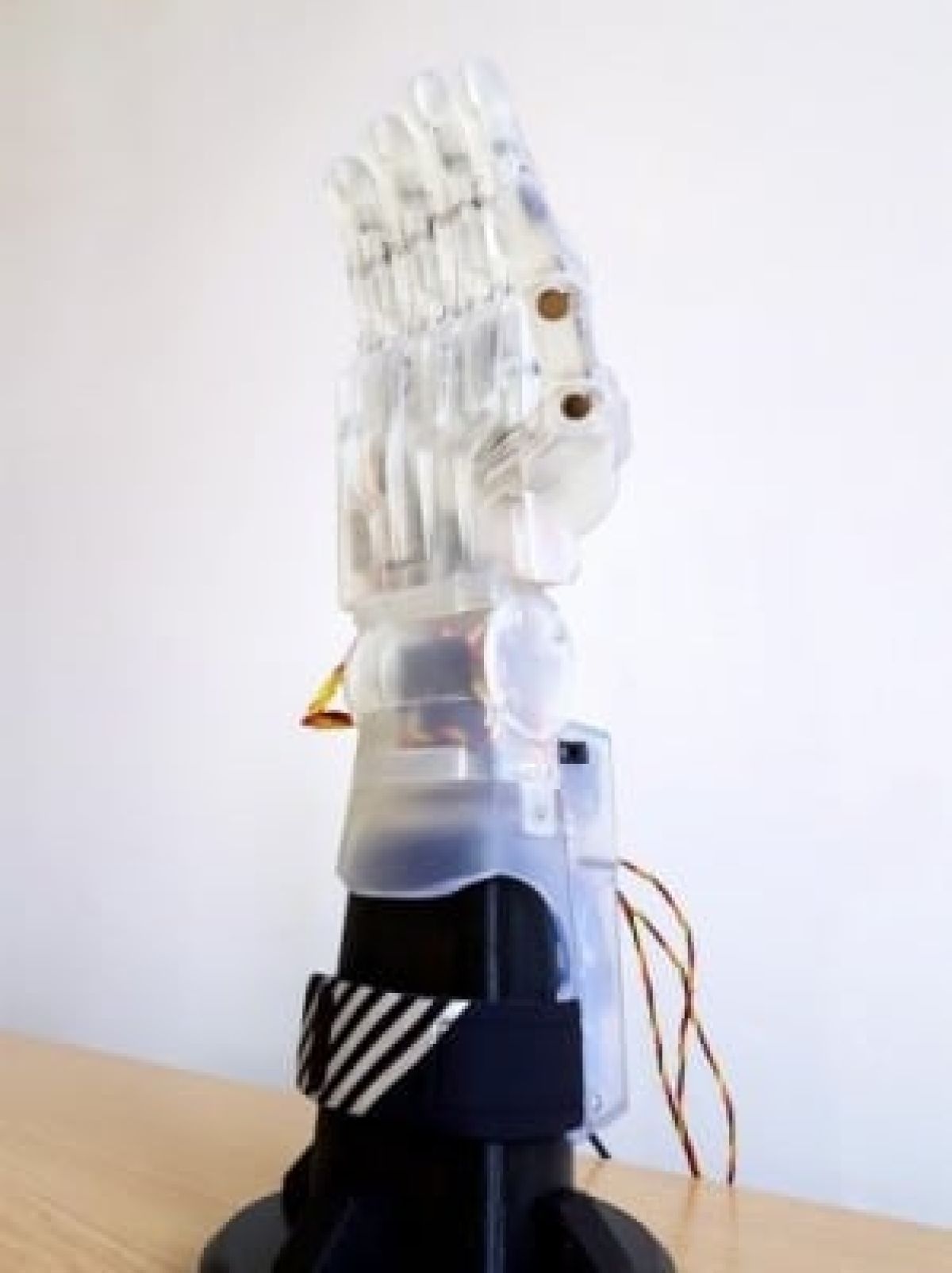Manchester students build affordable robotic hand
By Jordan Ross

Using 3D printing to produce a new prosthetic limb, a student group at the University of Manchester could slash the cost of a functional replacement hand for amputees by £57,000.
Their robotic mechanical hand allows wearers to move all the electronic fingers by sensing muscle movements on the user’s arm. Users will be able to perform everyday tasks such as eating with cutlery, typing an essay or even playing a game of ‘rock, paper, scissors’!
The NHS currently performs approximately 6000 limb amputations per year, providing patients with mainly non-automated, cosmetic, plastic limb replacements.
The artificial limb prototype cost the team £307 to produce; this is significantly less than the £25,000-£60,000 cost of similar mechanical limb products on the market, with even the most basic costing £3000. This new cheaper prosthetic means that one day all amputees could receive moving robotic hands.
Group leader Alex Agboola-Dobso said: “Not only do we want to make it affordable, but also want people to actually like the look of it and not be ashamed or embarrassed about using or wearing it.
“Some traditional prosthetics can both look and feel cumbersome, and those that don’t are extremely expensive. We think our design really can make a difference and we will be looking to commercialise the project in the future.”
At this year’s Industry 4.0 summit & Factories of the Future Expo earlier this month, the students won ‘Best New Development’ in the innovation challenge. They defeated four competitor groups at the Manchester-based future of technology event.
Dr Carl Diver, from the School of Mechanical, Aerospace and Civil Engineering, said: “We are really delighted for them, it was a great experience for them to pitch their idea in front of a panel of experts and the prize money will help them develop the idea further. This will be a great addition to their CV.”
Alongside leader Agboola-Dobso, the team, who aim to bring the hand to market, are comprised of lead electrical engineer Sebastian Preston-Jensen, lead software engineer Panagiotis Papathanasiou, and mechanical and software engineers Maximillian Rimmer and Shao Hian Liew.
They have also designed an accompanying Android app that allows users to control how the robotic hand is moved via a Bluetooth signal.
Alex added: “The functionality is customised through the phone app, but the muscle sensors provide the control by moving the hand whenever necessary. It is really simple to use.”
The group used a ‘high-quality resin plastic’ 3D printing method to make the product, known as ‘Stereolithographic (SLA) printing.’ In the future, the team hope to use the more efficient ‘Fused Deposition Modelling (FDA)’ printing method.
Dr Diver added: “We are very excited to see what the future holds for this group and their innovative creation.”







